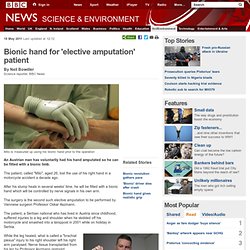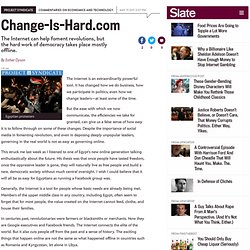

Mark Zuckerberg: children should be allowed to use Facebook. A la table de l'Elysée, Nicolas Sarkozy drague les stars du Web. Mais non, Nicolas Sarkozy n'est pas l'ennemi d'Internet : c'est en tout cas le message qu'il a voulu faire passer aux huit professionnels et blogueurs invités à déjeuner à l'Elysée , ce jeudi. Le Président a admis les limites de la loi Hadopi et annoncé la création d'un Conseil du numérique. Ceux qui attendaient de ce déjeuner la disparition de l'Hadopi et des articles du projet de loi Loppsi portant sur Internet seront déçus. « Il voulait essentiellement renouer le dialogue avec les professionnels », nous explique un des invités. « Ca s'est bien passé, même s'il n'a pas été ménagé », précise un autre : Nicolas Sarkozy aurait reconnu que la loi Hadopi contre le piratage avait ses limites : sans annoncer de nouveau texte sur le sujet, la loi Hadopi ayant déjà connu deux versions, il aurait promis d'associer les professionnels d'Internet aux prochaines mesures et à une éventuelle loi « Hadopi 3 ».
Sarkozy prioritises internet regulation at G8 summit. Bionic hand for 'elective amputation' patient. 18 May 2011Last updated at 12:12 By Neil Bowdler Science reporter, BBC News Milo is measured up using his bionic hand prior to the operation An Austrian man has voluntarily had his hand amputated so he can be fitted with a bionic limb.

The patient, called "Milo", aged 26, lost the use of his right hand in a motorcycle accident a decade ago. After his stump heals in several weeks' time, he will be fitted with a bionic hand which will be controlled by nerve signals in his own arm. The surgery is the second such elective amputation to be performed by Viennese surgeon Professor Oskar Aszmann. The patient, a Serbian national who has lived in Austria since childhood, suffered injuries to a leg and shoulder when he skidded off his motorcycle and smashed into a lamppost in 2001 while on holiday in Serbia. Milo used a hybrid hand before deciding on the operation While the leg healed, what is called a "brachial plexus" injury to his right shoulder left his right arm paralysed.
World first. Bacteria-rich hailstones add to 'bioprecipitation' idea. 25 May 2011Last updated at 08:45 By Jason Palmer Science and technology reporter, BBC News The layers representing the build-up of hailstones can be seen in cross-section A study of hailstones has found large numbers of bacteria at their cores.

The find lends credence to the "bio-precipitation" idea, which suggests that bacteria are actively involved in stimulating precipitation. The bacteria have protein coatings that cause water to freeze at relatively warm temperatures. Researchers at the American Society for Microbiology meeting suggest bacteria may have evolved to use the water cycle to facilitate their own dispersal.
The micro-organisms that can be found in precipitation such as snow have been studied since the 1960s. One bacterium that has appeared in many contexts is Pseudomonas syringae, which expresses a protein on its surface that encourages an orderly arrangement of water molecules. Can the Internet help bring about democracy? Yes, but the hard work comes mostly offline. - By Esther Dyson.
The Internet is an extraordinarily powerful tool.

It has changed how we do business, how we participate in politics, even how we change leaders—at least some of the time. But the ease with which we now communicate, the efficiencies we take for granted, can give us a false sense of how easy it is to follow through on some of these changes. Despite the importance of social media in fomenting revolution, and even in deposing deeply unpopular leaders, governing in the real world is not as easy as governing online. This struck me last week as I listened to one of Egypt's new online generation talking enthusiastically about the future. His thesis was that once people have tasted freedom, once the oppressive leader is gone, they will naturally live as free people and build a new, democratic society without much central oversight.
Generally, the Internet is a tool for people whose basic needs are already being met. In centuries past, revolutionaries were farmers or blacksmiths or merchants.